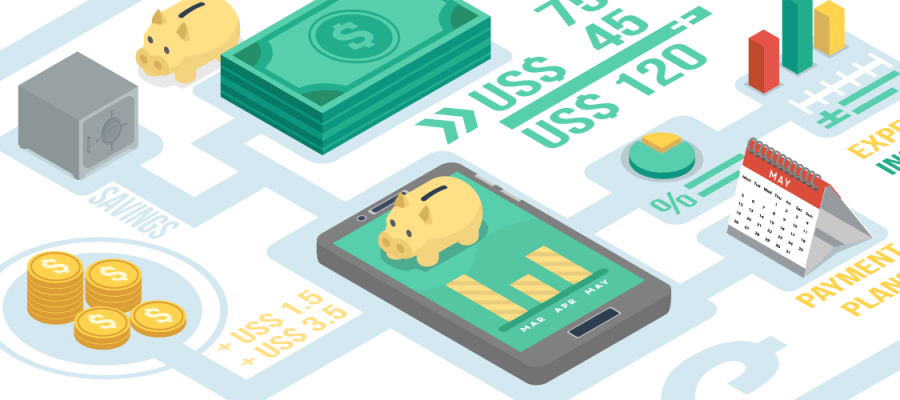With the current state of the economy, finding effective means of managing your funds is extremely important. Effective money management can help you pay your bills on time, decrease debt payment time, and still allow for money at the end of each month for fun activities.
First, work on creating a budget. A budget can be created using a simple Excel sheet or a budgeting tool such as Microsoft Money or Quicken. There are also a variety of online tools such as Rudder, Thrive, or Mint, all of which offer money management applications. Include any and all expenses for each month within the budget and remember to include the not-so-obvious ones such as groceries, gas, insurance, medical expenses, restaurants, and even entertainment. Most of your bills or expenses are not flexible such as mortgage or car payments and occur at the same time each month. These expenses are predictable easy to plan for. Other expenses such as groceries and entertainment are flexible – in the event a cut-back is needed, these flexible expenses are the ones to be cut. Once you have a budget, stick to it.
Next, work on building a savings account. Using your budget determine the amount you can spare to place in a savings account at the each month. Do this regularly. Everyone should have an emergency fund and feeding a savings account is the easiest way to do so. Plan to keep at least three months of living expenses in a savings account at all times. This means that your budget times three should be the minimum in your savings account.
If, at the end of each month you realize you have extra money not accounted for anywhere in the budget, use that money to pay down existing debt. For instance, if you allocate $100 a month for entertainment but only use half, use the remaining $50 to pay off an existing debt. This is a great way to cut back the amount of interest you will pay in the long run and the amount of time you will be paying off your loans or credit card.
Other tips that offer effective money managements include paying bills on time to avoid any late fees, paying more than the minimum or paying twice a month on credit cards to reduce interest, and comparison shop to find the best prices and bargains. Limit the use of a credit card and once the balance is paid off, try to keep it that way and shop for cheaper interest rates. Go green and find ways to reduce your utility bills each month. Reading your bank statement regularly can keep you informed and your bank account in check, thus eliminating over-draft fees.
For those who are quick to purchase or tend to make frivolous purchases, a prepaid debit card or a prepaid credit card may be the solution. Many of these cards offer budgeting solutions that can keep you on track. For instance, find a card that does not allow over-draft and use it only for purchases outside of your typical expenses. You could place a pre-set amount of $100 for entertainment on the card and once that money is gone, there can be no more money spent on entertainment for the rest of the month.
At the end of your first month, evaluate your spending and your budget to determine if any changes need to be made. Keep in mind that unexpected expenses do occur so having money in a savings account is a sure-fire way to accommodate those.


